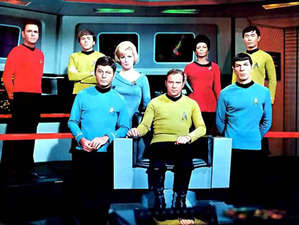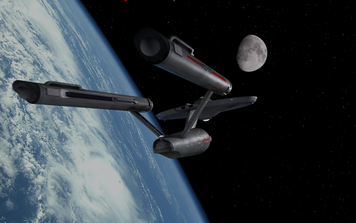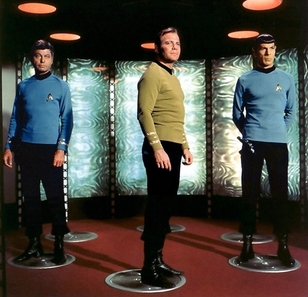
“Space – the final frontier. These are the voyages of the Starship Enterprise...”
Back in 1966, one man had a dream. A dream that would go on to become one of the most iconic sci-fi worlds ever. Exploring the galaxy and beyond, peaceful explorers would be able to tell allegorical stories about contemporary American politics. Gene Roddenberry’s original vision changed the world in multiple ways, from inspiring real-world inventions to creating tropes used across fiction today, and not just in science fiction. In the 49 years since Star Trek first aired, our screens have been treated to five live-action TV shows, one animated series, and twelve films (soon to be thirteen), but exactly where did it all start?

There’s Captain Kirk, the passionate leader who is surprisingly non-sleazy as he ends up with a woman on every planet. Mr. Spock, the half-human first officer who offers logical reasoning and a detached view of humanity. Dr Bones McCoy, Spock’s emotional, sarcastic counterpart (he’s a doctor, not a logician). Scotty, the engineer who isn’t just there to operate the transporter, but can pull things out of the Enterprise no-one else believes possible. Uhura, the communications officer breaking all of the boundaries by being a black woman in a position of responsibility on 1960s US prime-time. Sulu, the helmsman with a flair for swordsmanship and botany. Chekov, the “Russian” navigator an integral part of the team at a time when Soviet and American tensions were at their height.
But originally, this wasn’t the plan. Star Trek’s first pilot, “The Cage”, was enough to get the show canned (NBC bosses thought the show was too cerebral to be a success). It was only through a lucky set of circumstances (which included production company owner Lucille Ball persuading the channel to order another pilot) that a second pilot was made, retaining only alien Spock from the original pilot’s cast.

Written by renowned science fiction authors such as Robert Bloch, Norman Spinrad, Harlan Ellison, and Theodore Sturgeon, Star Trek wasn’t just about meeting strange new races, with Kirk bringing new meanings to the words “inter-species relationship”. If you wanted hard sci-fi, here it was - in between fighting lizard men, Star Trek would be looking at the morality of first contact, or the ethical consequences of time travel. It never shied away from dealing with weighty issues, such as sexism, racism, nationalism, the looming threat of global war and genocide.
But most of all, maybe why Star Trek worked so well is because it’s the epitome of “representation matters”. At the height of the Civil Rights movement, in the middle of the Cold War, just two decades after the forced internment of Japanese Americans, Star Trek treated none of its characters like they were just token representation. Star Trek might be remembered now for some of its shaky sets, model shots, gratutious red-shirt slaughter and a series of catchphrases, but in its day it was groundbreaking. Following Leonard Nimoy’s sad death last week, and ahead of next year’s jubilee celebrations, it’s the perfect time to pick up a science-fiction phenomenon at the beginning.

What did you think of Star Trek: The Original Series?
Which series is your favourite?
Let us know in the comments!

 RSS Feed
RSS Feed
